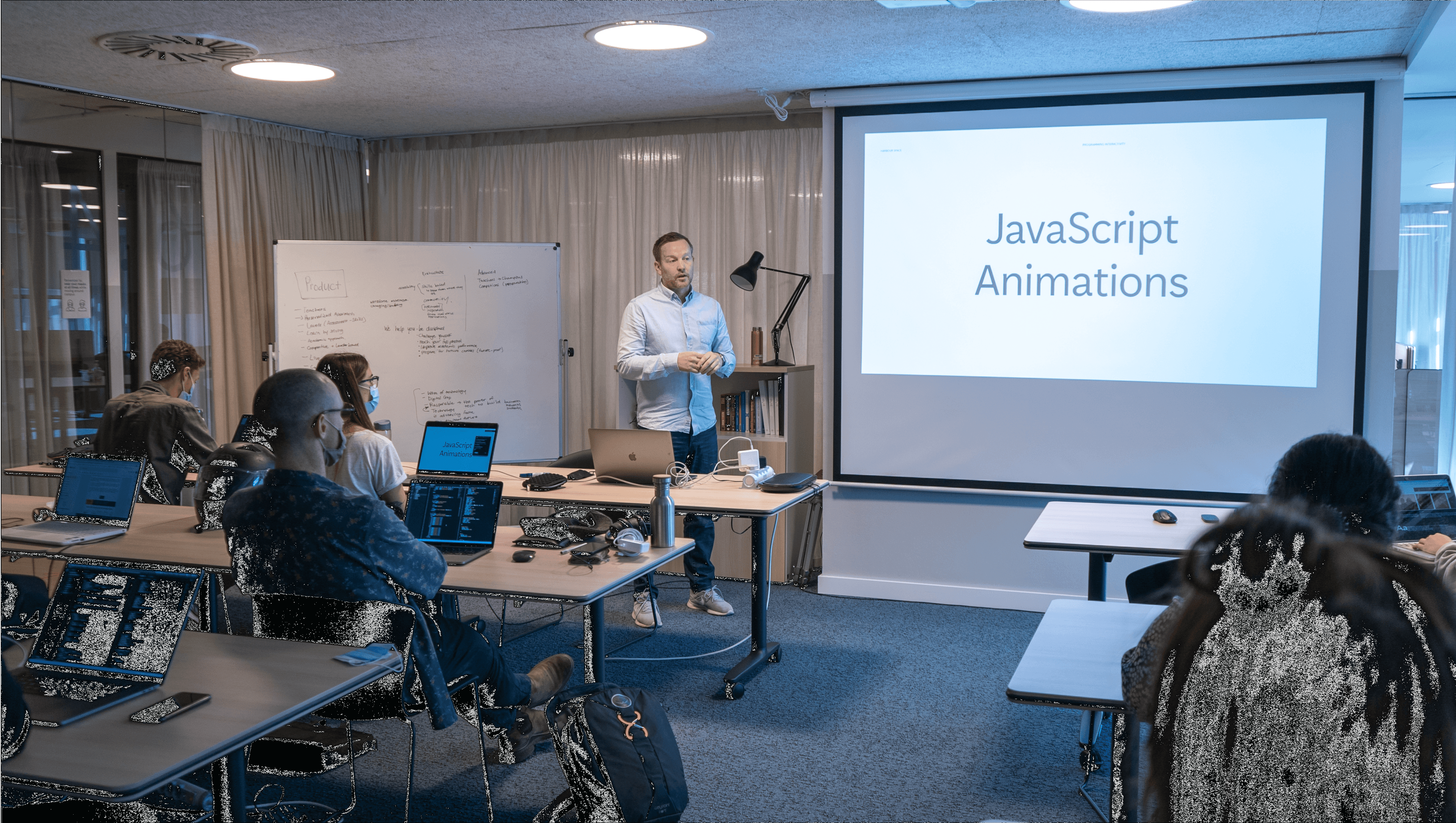Learn Front End Development
Our Front-end Development programme is where programming and creativity collide to build intricate, inventive and interesting web interfaces by applying animations and motions, and advanced web programming.

Copywriter at Harbour.Space University
Our Front-end Development programme is where programming and creativity collide to build intricate, inventive and interesting web interfaces by applying animations and motions, and advanced web programming.
Modern websites are designed to be attractive, performant, responsive, and mobile-friendly. In addition to basic technical prerequisites, a successful site has to offer a good user experience, functionality, reliability, and scalability. All these factors can make or break a website.
But what about the people who make websites? What sorts of skills do they require and where can they learn them?
All visible features of a website are created by front-end developers. You could say that front-end developers implement the design of a site into a fully functional website using various programming languages and frameworks. Back-end developers handle behind-the-scenes resources, like databases and various background services.
Programmers skilled at both front-end and back-end development are called full-stack developers.
At Harbour.Space University, you can receive a world-class education in Front-end Development, thanks to our cutting-edge curriculum and our experienced faculty members, many of whom are renowned front-end specialists and serial entrepreneurs.

Bachelor’s and Master’s Programmes
While online courses can introduce you to the fundamentals of front-end development, how can you ensure that the knowledge gained will suffice for your dream job, or provide you with the necessary fundamentals to keep improving your skills?
Harbour.Space University offers bachelor’s and master’s degrees in Front-end Development, providing students with an opportunity to gain hands-on experience in front-end projects and acquire vital skills.
Our faculty includes leading industry professionals with extensive experience in creating front-end solutions for big brands and market leaders across a range of industries.
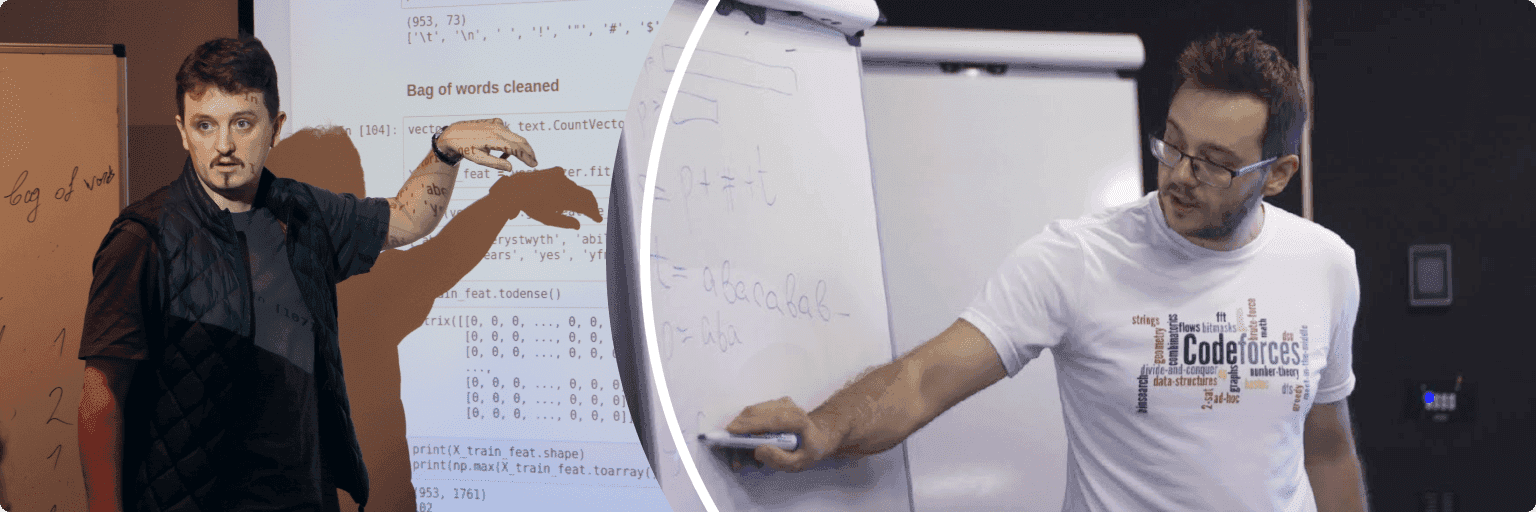
If you are a creative tech enthusiast looking for an exciting career, our Front-end Development Programme offers a unique opportunity to master the necessary skills and enter the job market ready to take on serious projects that will advance your career.
Our Bachelor’s Front-end Development programme is a full-time, three-year 180 ECTS course. Over the duration of the three-year programme, students go through three levels of achievement.
In the first year, they’re introduced to programming fundamentals, interactive web design, and the basics of how to approach a front-end engineering career.
In the second year, the core of the programme, students learn and practice popular frameworks such as React, learning more advanced skills that will enable them to create more elaborate and immersive websites.
The third year of our programme introduces students to different development challenges and instils familiarity with the concept of full-stack development.
Students leaving this course will be ready for the competitive job market and capable of joining creative agencies and startups. For additional information, you can take a look at our complete curriculum for our bachelor’s programme.
Our Master’s Front-end Development Programme is a full-time, one-year 60 ECTS course. Throughout the one-year programme, you will touch base on design courses and make sure your skill level is top-notch, allowing you to work with the latest front-end technologies, such as React and WebGL.
Regardless of the area of your focus, mastering these spectrums and tying them together is what will make you stand out in the competitive ever-growing Front-end Development market. Take a look at our curriculum for our master’s programme.
Join students from around the world in this new programme starting in September 2021 for our Barcelona campus and August 2021 for our Bangkok campus.

The Value of Front-End Degrees
Marco Barbosa is one of Harbour.Space’s Front-end Programme leads. He’s the managing director and co-founder of 14islands, a highly-acclaimed design and development studio based in Sweden and Brazil. The studio has done work for global brands such as Adidas, Disney, Facebook, HBO, Ericsson, and Shopify.
We asked him to share his thoughts on the value of front-end education and future trends in this rapidly evolving field.
Q: Front-end Development is a very dynamic and rapidly changing field. How well does the Harbour.Space curriculum reflect the current needs in the field? What changes do you see in the future?
The front-end development field is indeed very dynamic. However, I see a few key points that will stay relevant for a very long time. Users are becoming more demanding (and unforgiving) for a good user experience, and it’s up to the development field to keep up with that.
JavaScript frameworks, like React, are making it easier to code and consequently achieve better experiences. React and ThreeJS, for example, are here to stay for a long time. I believe good practices and courses sharing a common mindset focused on a good user experience will make the curriculum relevant for whatever change is yet to come.
I see development getting even more democratic in the future with a boom of newcomers in an ever-growing industry. We are indeed witnessing a milestone. Technology is currently not keeping up with market demand, and at some point, that should even out. Therefore, now is a great time to learn new skills and make sure you stay relevant going forward.
Q: Practical hands-on experience and collaboration with the team are essential skills for all developers. What is your method for developing these skills with the students?
Hands-on coding as much as possible without forgetting to understand why we are doing what we are doing as good developers should.
The idea is to give practical industry examples on everyday scenarios and engage the students to collaborate on how to solve those needs with our mentoring. The students should feel ready to join the industry as soon as they finish the program.
Q: What are the main challenges for you when sharing your knowledge and insight with students?
To make sure they understand the importance of design and the synergy that it has with development. What will make a genuine difference between good and great developers will be to appreciate design challenges and the importance (and fun) that is to solve them.
I like to think that front-end development shares a great deal of responsibility with design as it is the first layer that will allow the user to interact and view the application. We should take that responsibility and deliver.
Job Opportunities and Salaries
Front-end developers are some of the most in-demand software professionals in today’s job market. This is reflected in the salaries offered to front-end developers, even junior ones.
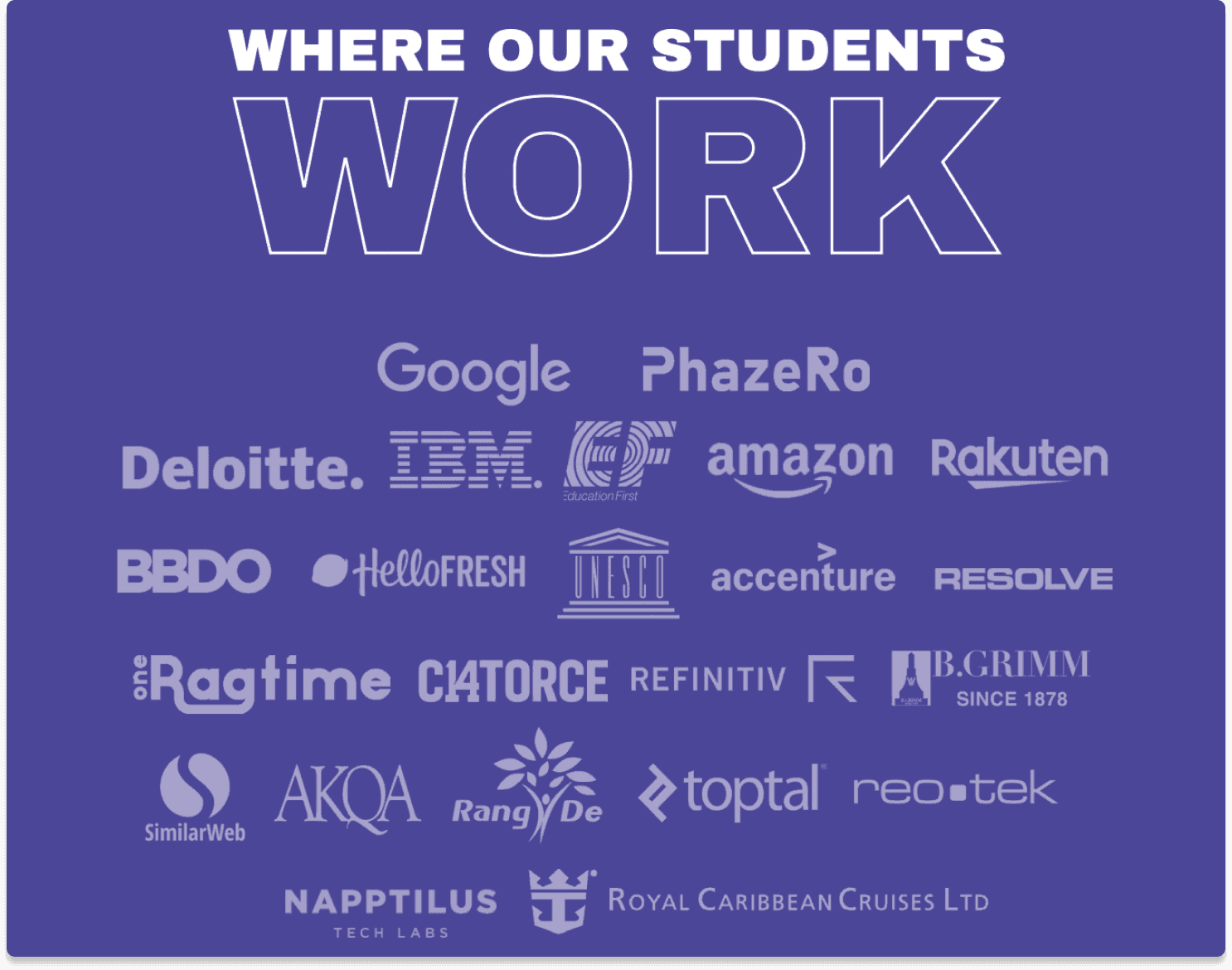
The U.S. Bureau of Labor Statistics (BLS) suggests a significantly faster-than-average job growth rate of 8% for all web developers from 2019 to 2029. It is worth noting that the Covid-19 pandemic did not have an adverse impact on demand for software engineers, quite the opposite.
Demand for software talent has grown since the start of the pandemic, as an increasing number of companies have decided to embrace remote work and invest in their online presence.
What about the actual salaries? Glassdoor.com reports the national average salary for a front-end developer in the United States is $86,832.
Of course, junior developers tend to make less than the average, while senior developers can routinely land six-figure salaries.
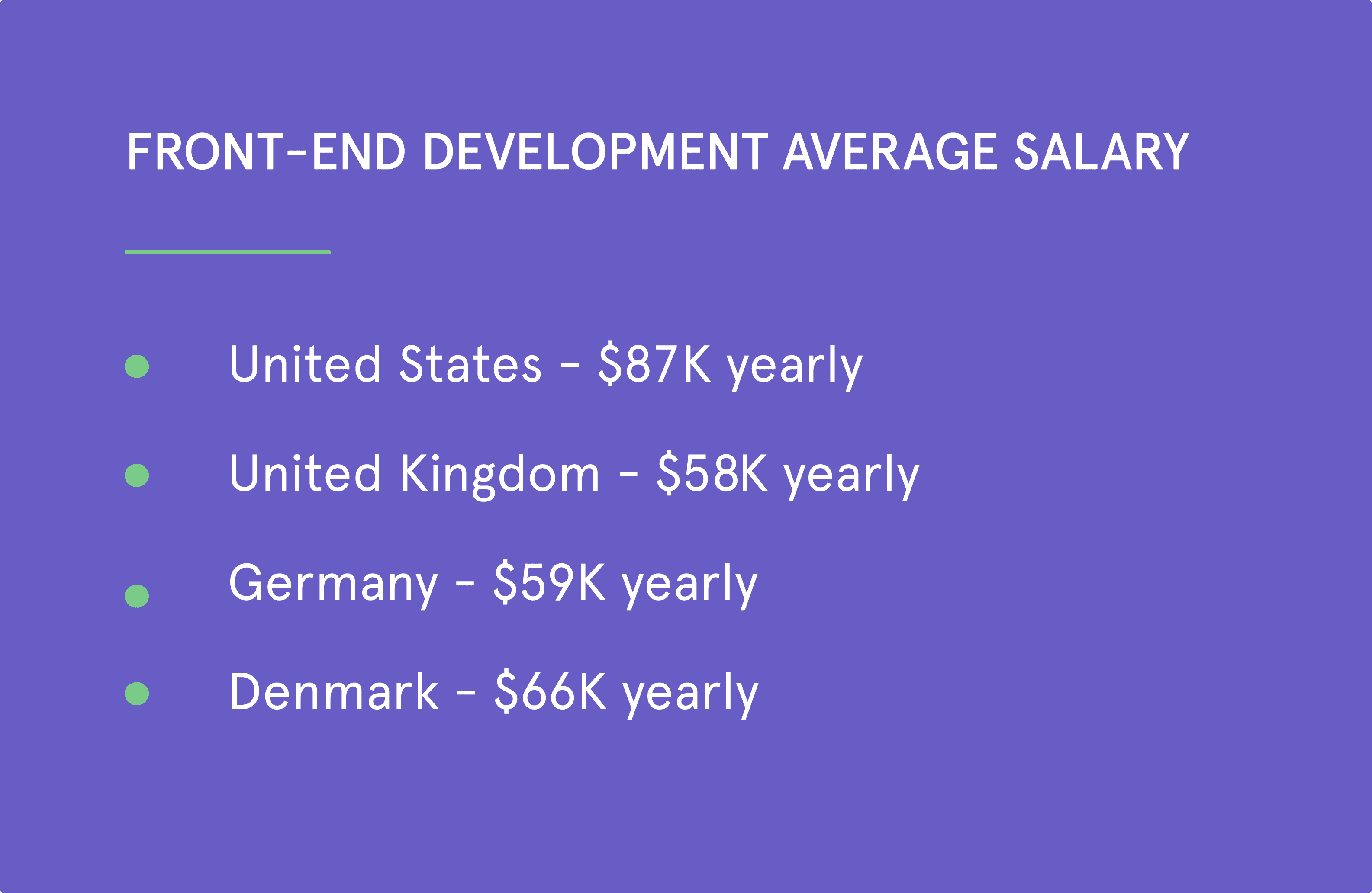
Keep in mind that front-end developer salaries vary significantly between different countries, and even between different regions in the same country (e.g. a developer based in San Francisco is likely getting paid more than a similarly skilled developer in Des Moines due to the higher cost of living in the San Francisco area.)
As for Europe, the same source found the average base pay of a front-end developer in Germany is €55,002. Daxx reports somewhat lower figures for Germany, at $59,000 for mid-level developers, while UK-based developers are likely to make about the same as their peers in Germany, about $58,000 a year.
Salaries in Scandinavian countries tend to be somewhat higher, at $66,000 in Denmark and $60,000 in Finland.
Please bear in mind that these figures don’t paint the full picture, as income tax and the cost of living vary between different countries, even when considering certain EU member states in close geographic proximity.
The employment rate of our students is 95%, while 83% get a job within three months of graduation—more than half of Harbour.Space students get a job even before graduation.
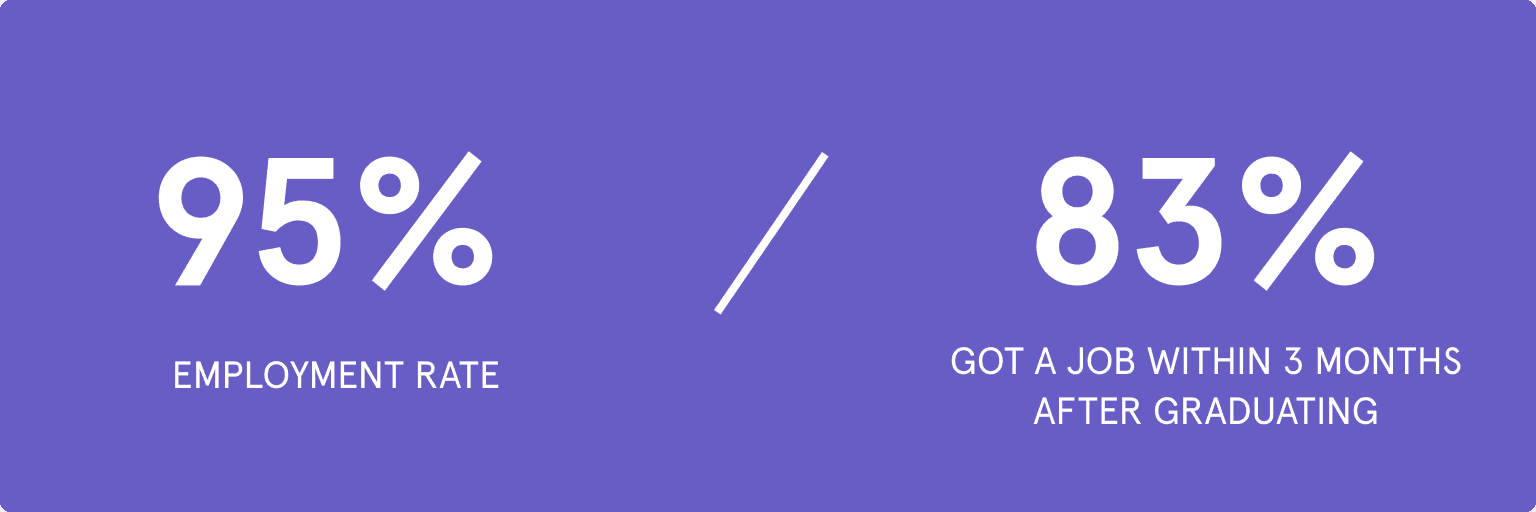
Scholarships
We are looking for talented individuals to join our Front-end Development programme right now.
Apply for a scholarship and get up to 50% off the tuition for free. After applying, we will review your application and contact you within a week if your profile matches our requirements.
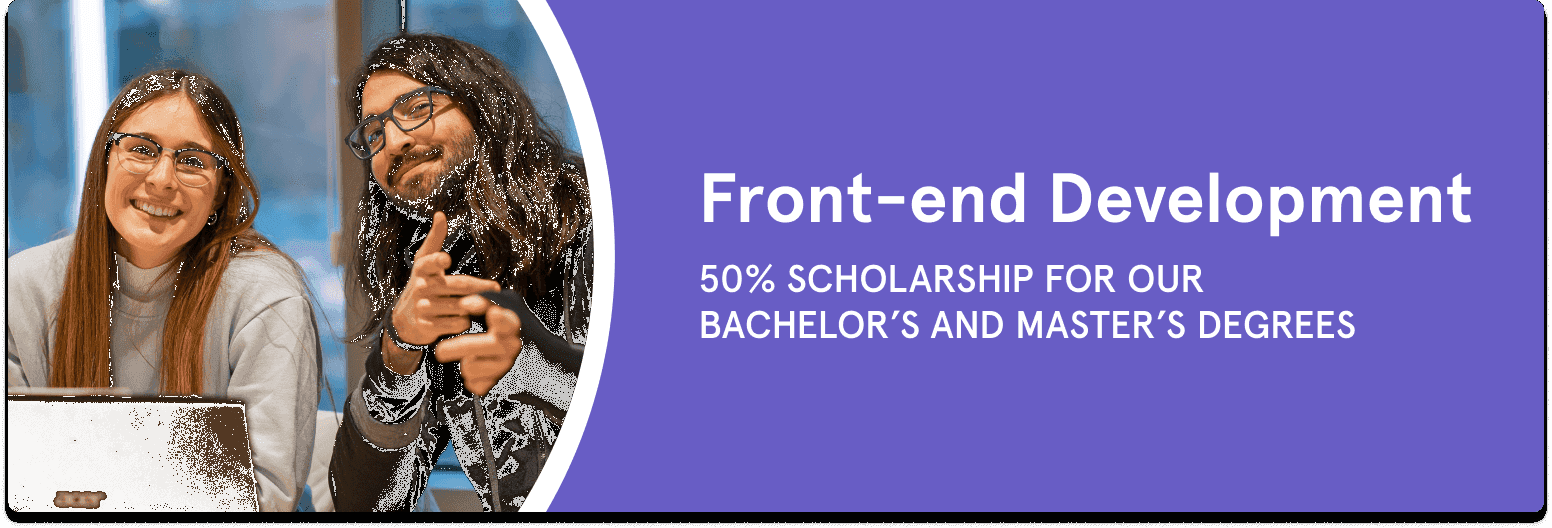
Inspired? Your future starts now. Learn more about the first-ever Front-End Development programme and see how we can help your career be more fulfilling, exciting, and meaningful.
Also, get in touch with us at hello@harbour.space to let us know your thoughts.
Thanks for reading
If you’re interested in further growth, take a look at our website to learn what your future could look like at Harbour.Space. Lastly, get in touch with us at hello@harbour.space to let us know your thoughts!
